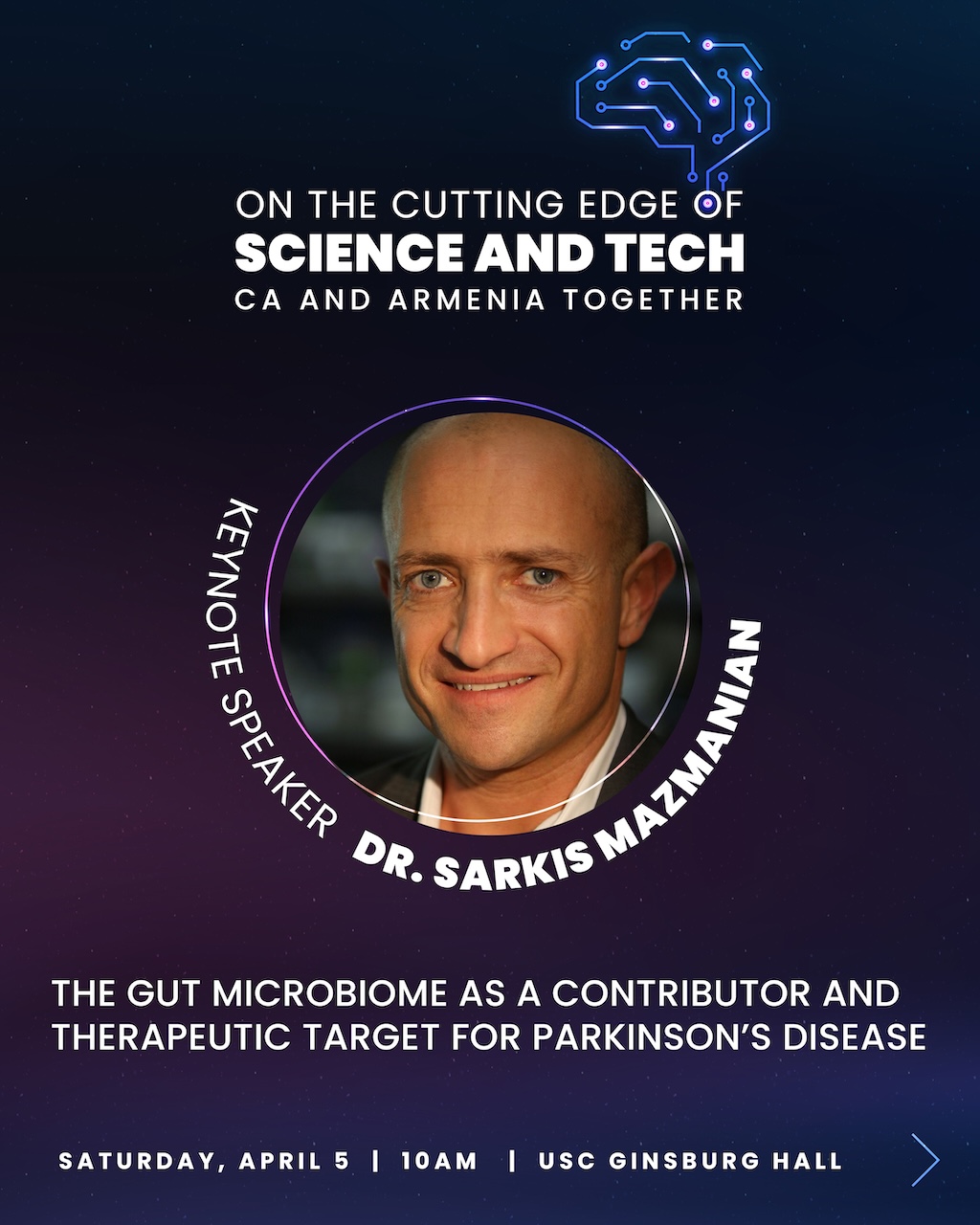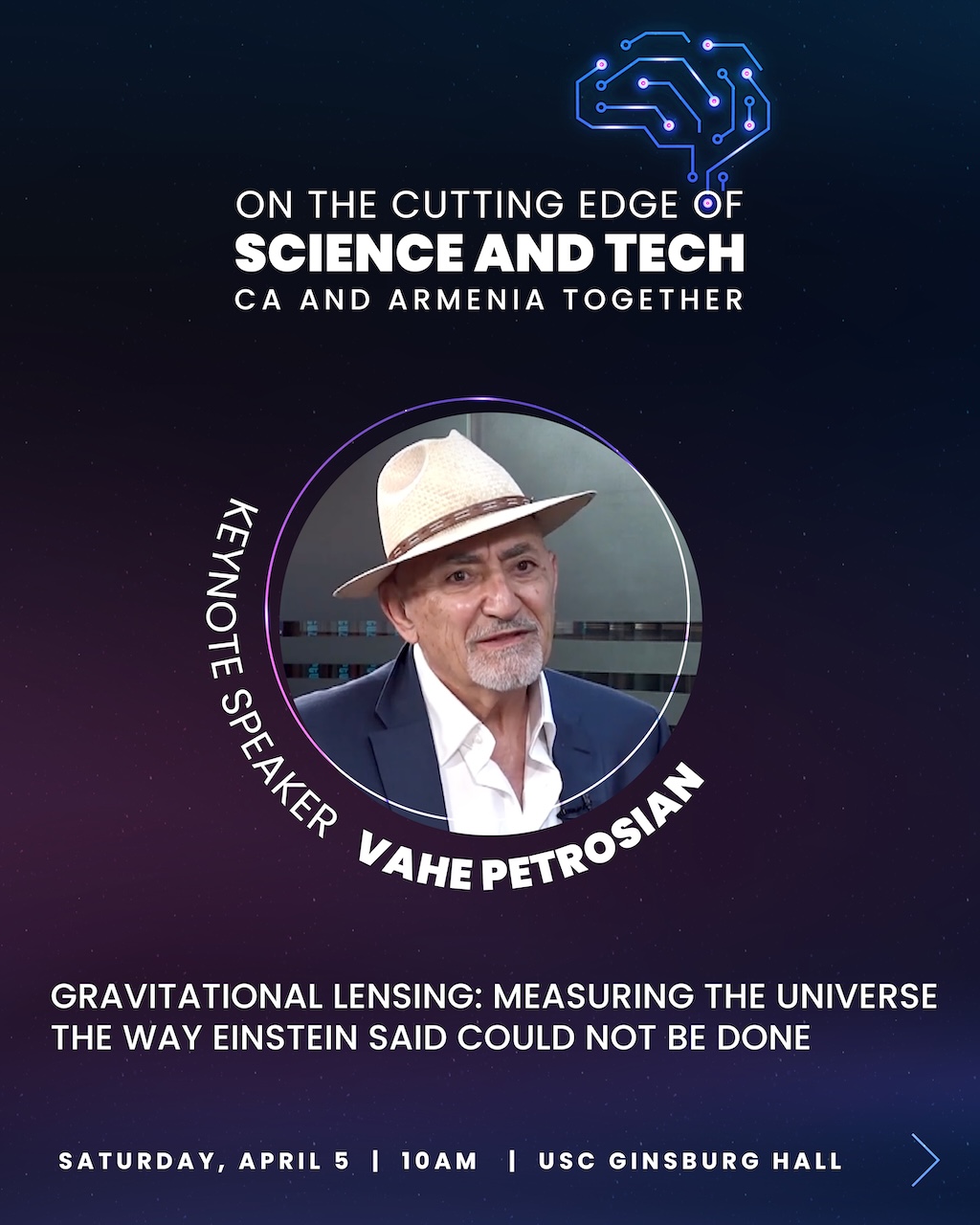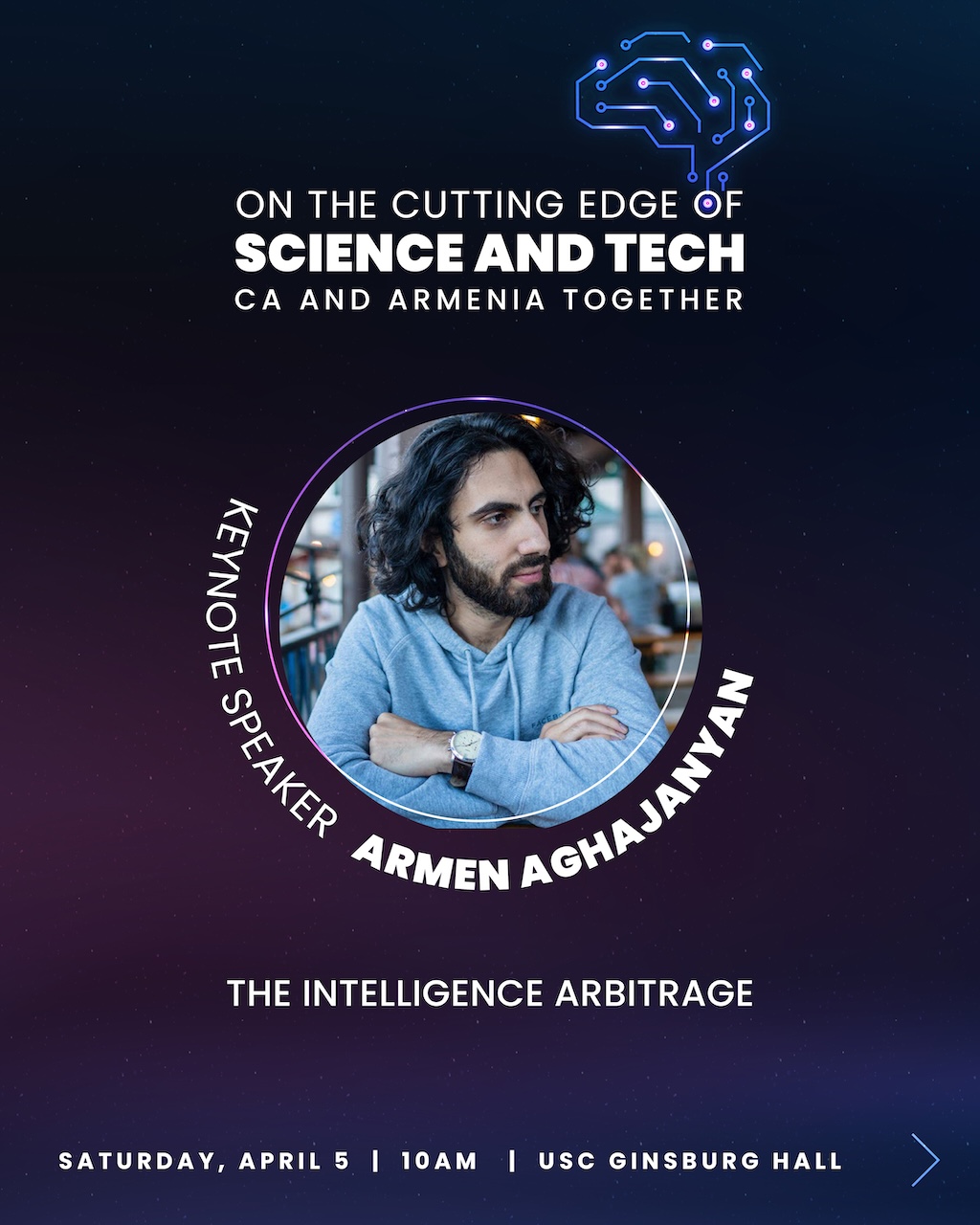The conference will feature world-renowned scientists from institutions such as Stanford University, the California Institute of Technology, and Meta, who will share their groundbreaking work in astrophysics, neuroscience, and artificial intelligence. These distinguished experts will provide insight into how their pioneering work is shaping the future of science and technology.
In addition to inspiring keynote lectures, the program will highlight the robust transnational networks between the California Armenian diaspora and the Republic of Armenia, showcasing the vital role that these collaborations play in advancing global innovation. Furthermore, the event will discuss the unique role of the university in addressing today’s most urgent challenges through science and technology.
The conference is co-sponsored by the USC Viterbi School of Engineering, USC Dornsife College of Letters, Arts and Sciences, and the ARPA Institute (Analysis Research & Planning for Armenia).
The event is free of charge and open to the general public; a full program will be available in the coming weeks. The conference will not be live-streamed — RSVP is required.
Sarkis Mazmanian is the Luis & Nelly Soux Professor of Microbiology in the Division of Biology and Biological Engineering at the California Institute of Technology, and a board member of Seed. Prior to this, he was affiliated with Harvard Medical School and the University of Chicago. In 2012, he was awarded a MacArthur Fellowship for his pioneering work on the human microbiome. He obtained his doctorate degree from UCLA. Professor Mazmanian's research has won him several awards including a Searle Scholar, Young Investigator of the Year at Harvard Medical School, Damon Runyon Innovation Award, and Discover Magazine named him as one of the "Best Brains in Science under 40". Mazmanian's research investigates the symbiotic relationship between beneficial bacteria and their hosts. In seminal work, Mazmanian discovered the first microbial molecule that has direct beneficial effects on mammals. Professor Mazamanian has also been involved in several ventures, having founded Axial Biotherapeutics and Symbiotix Biotherapies.
Vahe Petrosian is Professor of Physics and Applied Physics, and Chairman of the Astronomy Program at Stanford University. His research over the past sixty plus years has contributed to the understanding of many astronomical objects from the Sun to clusters of galaxies. In the 1970s he developed a new method of measuring galaxies, used broadly in modern surveys of galaxies, known as the Petrosian Radius and Magnitude. In the 1980s he and Roger Lynds discovered large arcs in clusters of galaxies that led to the burgeoning field of gravitational lensing, the main method of measuring mass in the universe today. In recent decades, his main research focus has been on high energy astrophysical processes and cosmological evolution of galaxies, quasars and gamma-ray bursts, using novel statistical techniques he developed with Brad Efron, with the aim of exploring early universe processes. Professor Petrosian obtained his doctorate in 1967 from Cornell University. He joined Stanford in 1969, where he has trained 25 doctoral candidates and mentored 35 undergraduates and 15 post graduate fellows. Professor Petrosian is the recipient of numerous fellowships and awards. He is a member of various international professional organizations including the Armenian National Academy of Science, the Royal Astronomical Society, the American Astronomical Society, and the International Astronomical Union.
Armen Aghajanyan is the Co-Founder & CEO of
Perceptron AI, a frontier foundational model company building towards physical AGI. Before then he was a research Scientist at Meta's Foundational AI Research (FAIR) division for 6 years, where his research primarily focused on understanding mixed-modal large language models. He is notably recognized for his contributions to the field, including authoring the first mixed-modal model (CM3), the inaugural scaling law paper for mixed-modal models, and the first omni-model, Chameleon. Before joining FAIR, Armen worked with Microsoft's Turing team.






